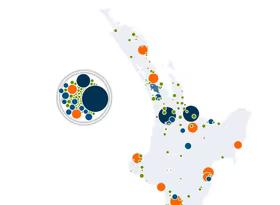Articles
Māori Party co-leader Rawiri Waititi recently called for the eligibility age for New Zealand Superannuation (NZ Super) to be lowered to 57 years of age for Māori. Waititi made the argument based on Māori having a lower life expectancy than non-Māori. Life expectancy only tells part of the story, so in this article we explore the issue by looking at life expectancy, health expectancy, and the nature of work. Read
The New Zealand labour market has recovered better than anyone expected from the economic contractions brought about by COVID-related lockdowns. In fact, with a record low unemployment rate of just 3.2%, the talk now is of an overheated economy with very little spare capacity in the workforce Read
In the years since the Global Financial Crisis, New Zealanders have enjoyed consistent economic growth and Māori have earned their share of this. But on many key metrics, a clear gap between the economic fortunes of Māori and non-Māori remains. Read
Back in August we noted that Auckland city (the urban area defined by Stats NZ) has as many people as the next 12 cities combined. We also showed a map dividing Auckland up into 12 areas with equivalent populations to the cities. Unfortunately, the map is now out of date as Stats NZ revised their population estimates in October. Read
Māori education outcomes continue to lag behind other groups in New Zealand. This lower attainment highlights a need to change what we’re doing to ensure that Māori succeed in education. Increasing Māori education outcomes will not only unlock more opportunities but will also give New Zealand the skills to enable us to prosper. A focus on Māori education outcomes is even more important given the growth in Māori in the working age population over the next 10-20 years. Read
Lifting the skills and opportunities available for Māori has been one of the key priority areas of the government’s Wellbeing Budget. Plenty has been written about the socio-economic, health and other challenges facing Māori over the past couple of decades, yet many of these interrelated issues remain. Read

